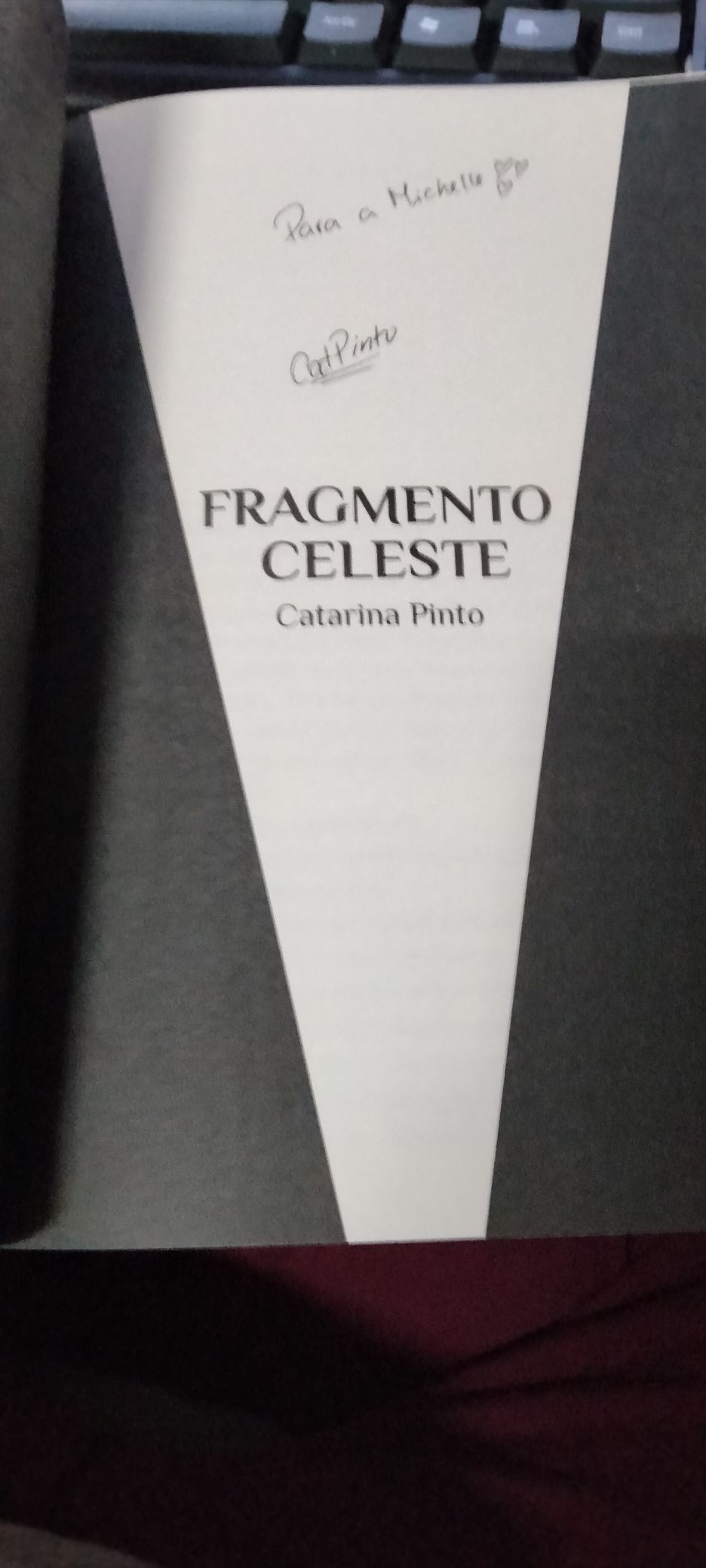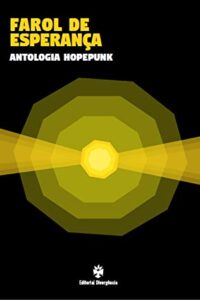I don’t pick up new books often. That’s a statement that might surprise you or it might a statement that, if you live in Portugal can make all the sense in the world. Really, I should rephrase that sentence a little, I don’t pick up books new, from bookstores often. My trips to thrift stores and second hand stores where I buy a half a dozen books for 50 cents or one euro each are great and have led me to plenty of hidden gems but it’s usually a few years before I pick up the new books everyone is talking about at the moment. Though great deals on ebooks always lead me to spend more than I plan when I go that route the truth is that a brand new book from a best seller author is an investment.
It’s an often given advice to translators, because I am well aware of where I’m posting this review that if they want to improve their language skills they should read more. Reading allows you to increase your vocabulary and more than reading in the source language, the language you translate from you should read books in your target language, that is the one you translate into. What’s a better and more fun way to learn new words?

Having authors validate my identity when signing my book is half the battle in convinving me to get one…
Indeed looking at translations of books and their original, seeing how you would have translated it and appreciating, or sometimes bemoaning translation choices as done by the person who translated it is one of the better ways to improve your skills. It sort of gets the brain working, “how would I translate this?”, or “was this word translated correctly?” I still remember smirking when I caught someone translating “Wooden” as if it meant “filled with woods (forest)” instead of “made from wood (the material). More than that it teaches me new words, some of which I go on to implemente in my translations. Sure you can call an Irish eye a black eye, but did you know there’s a similar cultural expression in Portuguese? “Olho à Belenenses” like the football club which is checkered? That’s one I never forgot.
That said unless it’s an ebook deal where I tend to spend more than I planned to spend, I’m always careful on what books I buy, and so when I do I tend to reread them more than once. Anthologies tend to be one of my favorite type of book to read for that exact same reason, as I can absolutely detest some of the short stories and love others and reread them often. So, full disclosure, when a friend of mine was published for the first time, and was extatic about it, smiling when she told me to the point she had to go outsider to scream “yes!” I knew I had to get the book. It mattered not that in my family books are a birthday and Christmas sorta deal, for special occasions, I just knew I had to read them.
Hopepunk is a relatively new term and one I didn’t know before starting the books but it was one that sounded nice to my ears. Hope, the last thing to die and yet something we always need more of, and something that, in my worsening mental state, sounded like something I wanted to get. Did hope not represent my friend’s attempts at being published? The smiles I saw on the author’s faces as I went to the book première? After months locked in at home, did it not represent what everyone had for normalcy? So I picked the book up.

It also helped it wasn’t 20+ euro, Like seriously…books in Portugal ARE expensive.
I am biased coming into this but something I want to try and do is to reveal my thoughts about the different tales. Yes, the book is in Portuguese, and yes, that means if you don’t speak Portuguese but follow this blog this might be useless to you but as a bit of a writer myself, in the way Norman Osborne is a bit of a scientist himself I know how much hard work and dedication goes to the stories. So here are my honest, raw thoughts on each one:
A Costura do Vidro by A.M Catarino Feels like Portuguese writing at its core and it’s brilliant in that sense. You may not realise what I mean when I say Portuguese writing, or literature in general but it’s a very Portuguese way of writing where in the course of writing about characters, characters who are lost in their own way and don’t know what will come after or where they’re headed they tend to challenge the status quo, and ask uncomfortable questions. It’s a sort of rambling, confused and philosophical that takes place in the most common of characters. This stories takes place after an unexpected event where everyone just sort of…disappears leading the main character to try and figure out why he was left out and to make some sense of what his goals now are. Fittingly, because this is hopepunk, he isn’t exactly alone and he decides to take some of that Portuguese nature, that “I’ll figure it out as I go along” to make the best of it. A costura do Vidro “The glass’ stich” in a freeform translation left me feeling a sort of existencial dread, the good kind when you read a story that makes you wonder about life and whether you’re doing the best of it. Although it wasn’t my favorite story, by a longshot, it was still one that felt appropriate as the introduction.
Chamamento Ancestral by Isabel Vila Pery has that mistery and open ended nature that leaves you questioning what happened and whether or not things will be ok. Happening after nature is so polluted and things are so screwed that there needs to be outsider inteference, something that looking at our current climate crisis doesn’t sound that much like fantasy it, much like A Costura de Vidro picks characters that are otherwise simple minded, unremarkable and just living their life and gives them greater purpose. The Hero’s tale often times devolves into Chosen Ones and Big Prophecies and saving the world but Chamamento Ancestral leaves me feeling as if me, just one person amidst many, can make a difference. Maybe that is the spirit of hopepunk, things will get better if we put in the work and it was an uplifting tale despite its open ending.
Esperança em tempos de Guerra by Lívia Santos was cute and adorable and perhaps a bit unrealistic but unrealistic in the way that hope often is. It tells the story of how a war that has raged on for decades if not centuries between earthlings and martians starts to end….due to something that is as mundane as it is humane. I love hearing tales of soldiers at war finding their humanity, seeing their enemies not as these big monsters, but as people – or in this case martians fighting for someone who never set foot on the battlefield. Despite fighting aliens this story has perhaps the humans of protagonists. If soldiers during ww1 can stop fighting, for just a night at Christmas, then perhaps, much like the protagonists in this story, something equally as meaningful can get us to stop too.
Fragmento Celeste by Catarina Pinto reminds me a lot of the second Earthsea book, and that is absolutely a compliment. Characters pushed into positions they don’t feel very comfortable with, like Disney Princesses wanting something more isn’t that uncommon, but Catarina made it so curiosity brings a new hope to the world. Many of the short stories in this book are about challenging the status quo, or questioning if there isn’t more to life but I absolutely adore than in Fragmento Celeste despite the dangers, despite opposition, despite making them a target, the character’s curiosity doesn’t kill them, as if they’re the cat, but rather provides them with new meaning and purpose. Again the comparisons to Tombs of Atuan is very much deserved, and given that that’s one of my favorite books of all time, the comparison does mean something from me.
Frinxila by Sergio Santos is a love story but more than that it feels like the best political thrillers and fantasy novels where counts and duchesses and nobles conspire. I’m a weird person in that when most people watched Game of Thrones for the violence or the nudity I was more interested in the political ploys and questions. Though I haven’t read A Song of Ice and Fire as I honestly fear it’ll never get finished Frinxila managed to capture that intrigue and make me wish for a much bigger book, and perhaps even more than one book exploring events in it. Sure we see the end – of something, hatred beaten by love, and love born out of a sense of duty, but the politics intrigue me far more than they should.
Grim Death by Eduardo Santos is a story I know I would like when the literal second line of dialogue was the most Portuguese of swear words. If you’re Portuguese you’ll know of the significance of Caralho, which can mean fu-, shi-, or whatever else and it just primed me for a very fun read. Taking place in a dystopic future, where the population revolting has led to a series of restrictions. The living conditions are quickly set as dire, though the cynical nature of the main character where she makes some disparaging comments about other races and people hit me the wrong way but perhaps that only serves to highlight the change in the main character. Carlota, the main character paints herself as tough, agressive and non caring but the truth is that she is, as the narrative puts it, a heart of butter. Grim Death is crass, it’s raw and it’s the kind of story told at a table with friends, with tons of swears and edge and yet somehow, though it feels like a future imagined by an overly depressed 13 year old I felt myself enjoying the tale. It’s violent and it feels very much like something I would have written years back, but more than that it was entertaining. As the story seems to say, sometimes apathy is the worst possible thing someone can feel, and for what it’s worth Grim Death did not leave me feeling nothing.
Pelas ondas do Impiedoso Siroco by José Francisco Takes one of our Portuguese literary traditions, stories where we personify the sea, and apply human characteristics to him all the while somehow mixing up the greek pantheon and making a tale of our navigators and men of sea and takes it in a refreshing new direction. The question of whether or not we should be proud of the period of our History known as the Descobrimentos and the literal hundreds of thousands of slaves we sold over a 400+ year period i sone that is being argued and debated in schools and public society now but this story places importance on a very different aspect of sea travelling. The Sea, in Portuguese tradition has been described a variety of ways, stormy, grumpy, old, wise, and yet never have I seen it be so easily malleable, so open to interpretation and moved by innocence as in this story. Being painted as something that stretches far beyond the reaches of human comphreension, that saw Portugal grow and exist, I didn’t expect the sea to be portrayed as caring for what we thought. And yet, though that same personality can be applied to the Sea and Oceans in the beginning this story makes the sea to be closer to that in Vaiana than in The Lusiads. I loved the innocence displayed in this tale, and, more than that I loved how it painted things. If something as massive as the sea can be moved, why can’t human nature? Why can’t we?

So overall I loved how one single prompt, one single genre was painted so many ways, and while there are jokes I can make about the fact the sea, rivers, or exploration somehow made their way into EVERY single story, because you can’t take that out of a Portuguese writer I guess, it was mostly satisfying. If you’re reading this far, and don’t know Portuguese I don’t really know what to tell you, maybe that you’d better hope Editorial Divergência, the publisher gets to translate it into English but the stories contained here were some I enjoyed whether or not they were filled with philosophical wanderings, character relationships that get my heart to go “I ship it” or just edgy violence. It’s wonderful how much variation can come from a single idea, and I loved the book.
Whether or not Talking-Translation remains a place where I mostly post translation based articles (and there’s one that I’m currently drafting) or it divulges into a place for book reviews, a personal blog and whatever else I do remains to be seen but the truth is, reading this book I was reminded what made me want to be a writer and, more than that, a translator. Perhaps using “awesome” will paint my vocabular as bad, and “outstanding” would be preferable but, whatever the word choice, I enjoyed this book.
Now if only it came out in English…
